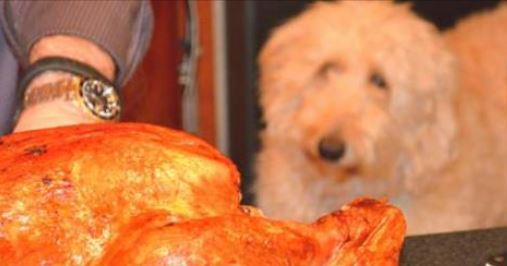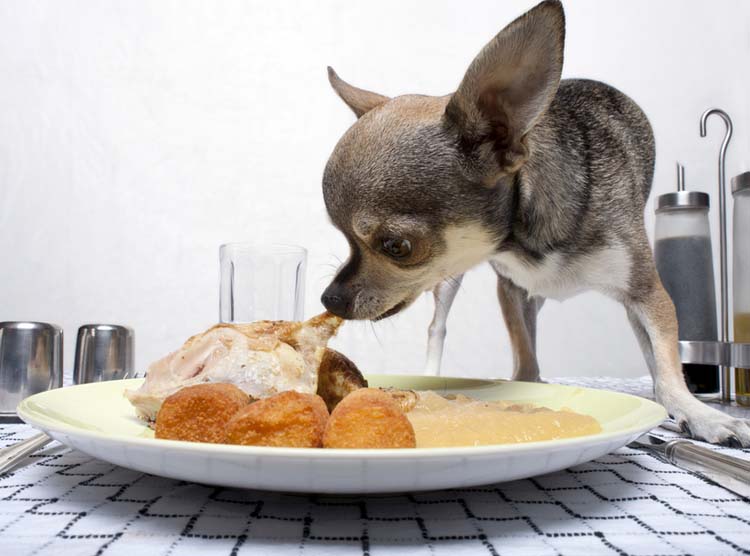Foods Not to Share
 With elaborate dishes, especially prepared meats, vibrant libations and rich desserts, Thanksgiving is a time when most people overindulge. For pet owners, it is tempting to share tidbits of food with their dogs and cats. However, many of these delicious foods can make them sick. Avoid feeding pets table scraps and offer healthy food alternatives that will keep them safe and happy on this special day.
With elaborate dishes, especially prepared meats, vibrant libations and rich desserts, Thanksgiving is a time when most people overindulge. For pet owners, it is tempting to share tidbits of food with their dogs and cats. However, many of these delicious foods can make them sick. Avoid feeding pets table scraps and offer healthy food alternatives that will keep them safe and happy on this special day.
Turkey Skin and Bones
Cooked turkey skin with no seasoning is hard to digest and turkey skin with butter and spices is even worse. If you decide to feed turkey to your pet, choose white meat, as it is not as rich as dark meat and is easier to digest. Remove the skin and cut the meat into small pieces before serving. Also, avoid feeding dogs cooked bones, as certain bones can lodge in a dog’s intestines.
Gravy/Buttery Side Dishes
Rich gravies and side dishes can wreak havoc on a pet’s digestive system. Dogs can develop inflammation of a digestive gland, pancreatitis, diarrhea and other painful and serious conditions. Instead, add a little turkey broth to their regular meal as a tasty alternative.
Onions, Garlic and Sage
Onions, garlic and sage are staples in Thanksgiving stuffing and other festive dishes. However, they can make pets sick. Onions and garlic are poisonous to dogs and cats and can cause abdominal pain, diarrhea and vomiting. If ingested, sage causes gastrointestinal upset if consumed in large quantities. Instead, give green beans or a plain hard-boiled egg.
Also be sure to not allow your pets in the kitchen. With food preparations and other busy kitchen activities, a spilled hot dish or dropped pan or bowl can injure or burn a curious pet. Have someone watch your pet or put her in a quiet room or in a crate or carrier away from the fray. Keep a closed lid on the trash bin to prevent pets from feasting on disposed food that could make them sick.
If a dog or cat is ill from eating toxic food, contact a veterinarian immediately, or call the Pet Poison Helpline at (800) 213-6680 or visit www.petpoisonhelpline.com.






